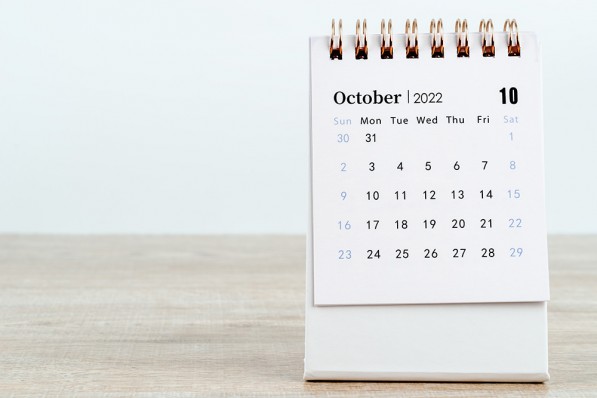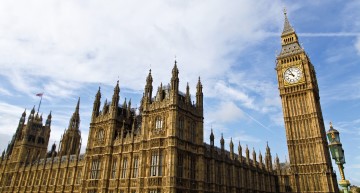Whether you are making regular monthly savings, or have a lump sum of money you are looking to invest, you should consider ways of holding your savings in a tax efficient way.
Savings & investments
Your ISA allowance is one of the few tax breaks you can get as an investor. It means you don’t have to pay income tax or capital gains on your returns. You don’t even have to declare ISA returns on your self-assessment form. This could make a significant difference to the value of your savings over the long term, particularly whilst preparing for, or taking income at-retirement.
The current ISA rules are:
- An individual can invest up to £20,000 each tax year into an ISA
- You can transfer money saved in a Cash ISA to a Stocks and Shares ISA and vice versa
- The whole £20,000 can be invested into a stocks & shares ISA, a Cash ISA or a combination of both
Junior ISA
- Account holders must be under 18 and a UK resident to hold a Junior ISA
- Parents or guardians can open and manage the account on a child’s behalf
- The child can take control of the account when they’re 16, but can’t withdraw any money until they turn 18
- Children aged 16 and 17 can open their own Junior ISA as well as an adult cash ISA
- Maximum contribution for the 2019/20 tax year is £4,368 and contributions can be held in a cash or stocks and shares ISA
Help to Buy ISA
Please see below for further information:
- Account holders must be at least 16 years of age (there is no maximum age for opening a Help to Buy ISA)
- The account holder must be a first time buyer and not own any property anywhere in the world
- The ISA is intended to help individuals with the purchase of a property worth up to £250,000 (or up to £450,000 in London)
- You can save up to £200 pcm into a Help to Buy ISA (you can deposit a lump sum of up to £1,200 in the first month)
- The government will contribute 25% of the value of your contributions at the time you buy your first home
- The minimum government bonus is £400; meaning that you will need to have saved at least £1,600 into your ISA before you can claim your bonus
- The maximum government bonus you can receive is £3,000 (you will need to have saved £12,000 to receive the maximum bonus)
- You can only hold savings in cash (stocks and shares option not available)
- It will not be possible to open a Help to Buy ISA after 30 November 2019
Lifetime ISA
Please see below for further information:
- An individual must be over 18 (but under 40 years of age) to open a Lifetime ISA. An individual can make contributions until they reach 50 years of age
- The government will contribute 25% of the value of your contributions each year, however to retain this bonus and avoid a penalty charge you must either:
- Use the savings to buy your first home
- Leave your savings in the Lifetime ISA until you are at least 60 years of age
- Maximum contribution for the 2019/20 tax year is £4,000
- Individuals will receive a bonus of 25% each tax year (maximum bonus is £1,000 each tax year)
- Can be held in cash or stocks and shares ISA
The government provides tax allowances for savings and investments held outside an ISA that may be available to you.
A Personal Savings Allowance may apply to the interest earned from your cash savings:
- Basic rate tax payers can receive up to £1,000 of interest each tax year before tax is applied to interest received
- Higher rate tax payers can receive up to £500 of interest each tax year before tax is applied to interest received
- Additional rate tax payers do not have a Personal Savings Allowance and will pay tax on all interest received
Any interest you receive beyond any Personal Savings Allowance available to you is charged at your marginal rate of income tax
A Tax Free Dividend allowance of £5,000 applies to all UK tax payers. Any dividends received in a tax year up to this allowance will be tax free. Beyond this allowance a rate of tax is applied dependent on your marginal rate of income tax:
- Basic rate tax payer: 7.5%
- Higher rate tax payers: 32.5%
- Additional rate tax payers: 38.1%0
If you are a non-tax payer, dividends that fall within your Personal Allowance do not count towards the £5,000 dividend allowance.
There are 4 main investments types (known as asset classes):
- Cash (short term savings)
- Bonds (medium to long term savings)
- Property (medium to long term savings)
- Equities/Shares (medium to long term savings)
Cash
Cash is typically:
- Low risk
- High stability of capital
- Has no growth potential
- Short term commitment (5 years or less)
- Variable income (unless using fixed rate cash product)
Bonds
Money invested into bonds is normally returned on a fixed date in the future and you will normally receive a fixed income during ownership.
There is a risk that you could lose some or all of your money if the company defaults. The UK government have never defaulted on a gilt.
Bonds are typically:
- Medium to low risk*
- Reasonable stability of capital*
- Little growth potential*
- Fixed or variable income
- Medium term commitment (up to 15 years)
*If held from issue to maturity – there can be a potential capital gain/loss if a bond is sold for more or less than its issue price.
Property
Property is typically classed as a medium to long term asset and prices may rise or fall in value over time.
If an individual purchases a buy to let property there may be a tax implication on the sale which is avoided when a residential property is sold.
Equities/Shares
The value of the shares invested may fluctuate daily and you may experience significant returns or losses.
Sales on equities may be subject to Capital Gains Tax (CGT) depending on the amount of profit made, the exemptions given by the government (CGT allowance) and how the shares are held i.e. shares held within an ISA when sold are not subject to tax.
Equities are typically:
- Medium to higher risk
- No stability of capital
- High growth potential
- Variable income
- Long term commitment (10 years+)
It should be noted that the value of investments can fall as well as rise. Past performance is not necessarily a guide to future performance.
The concept of risk varies with each individual and you should not consider taking more risk than you are happy to accept.



